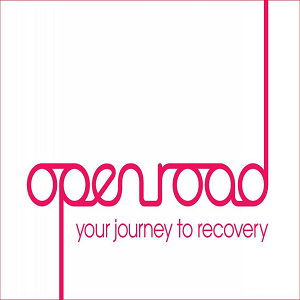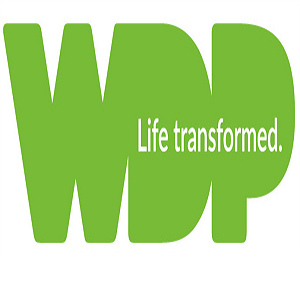Drug & Alcohol Rehab in Harlow

How Does Rehab Work?
Rehab involves the support services and therapies that people who have drug and alcohol addiction receive to beat addiction and subsequent relapse. Once a medical assessment and detox are completed, individuals will receive addiction treatment in the form of therapy. Treatment consists of therapy from a qualified counsellor, the attendance of group meetings as with a 12 Step programme, and the option of inpatient or outpatient rehabilitation. residential rehab services require that clients live at the residence or centre for the period of therapy. Outpatients will attend therapy by counselling or meetings but will not stay at the facility. Consultation with a medical expert and an individual assessment can help see whether inpatient or outpatient services are suited to your needs.
What Happens During Residential Rehab?
When you are ready to enter rehab for drug and/or alcohol misuse, it is a brave step towards recovery. Although achieving balance and breaking the cycle of dependence takes some time, it can be achieved. To help you make an informed decision regarding treatment, we look at the options available and what happens during rehab.
Prior to entering rehab, every individual will be assessed by a medical professional. The aim is to create a treatment plan suited to individual health and wellness needs. This is particularly important for those with a history of addiction and comorbid mental conditions including depression, anxiety or bipolar disorder.
An assessment is followed by detoxification. Detox is a structured process and is performed in a residential rehab or at home with guidance from a medical professional (outpatient services). During this period, individuals abstain from drugs and/or alcohol use until the drug/alcohol is no longer present in the body. Because of the difficulties associated with withdrawal, a medically supervised detox from drugs and alcohol is advised.
Therapy is an important part of the rehab process and every aspect of treatment must be tailored to address individual backgrounds, substance dependencies, and circumstances. Interventions can range from private counselling and cognitive behavioural therapy to developing coping mechanisms, skills, and attending group meetings.
1. Assessment

For any person entering rehabilitation, an assessment will be provided. It is a standard procedure meant to put your mind at ease as the specialist looks for specific behaviours, previous mental health issues, and overall health. In a residential programme, it is normal to have an admissions screening performed by telephone before booking you into treatment. Phone assessments allow the treatment centre to determine the relevant programme for you. It also provides staff with important information to customise support services during detox.
When you’re ready to pursue treatment for drug and alcohol addiction, a medical assessment must be completed. Assessments will guide therapy because it provides staff with the information, they need to develop a tailored treatment plan or advise on the appropriate intervention.
2. Detox

Detox is a period in which drugs and alcohol are no longer ingested and cleared from the body. It is a process that is best managed by medical staff in a residential facility.
It is best to have a supported medical detox because the experienced staff is readily available to help you through the withdrawal process. As the drug is removed, you may start to experience withdrawal symptoms. Without professional aid, there is a higher risk of relapse. Detox is followed by a fully tailored therapeutic programme. You can attend inpatient or outpatient therapy that is guided by trained addiction counsellors and a dedicated team.
3. Therapy

Once a medical assessment and detox are completed, individuals will enter therapy. The therapeutic intervention will consist of inpatient or outpatient services depending on your budget and life commitments. Some of the most common therapies you can expect at a treatment centre include traditional one-on-one counselling, trauma counselling and skill-building, and group therapy sessions.
Step by Step Process for Residential Rehab
To understand your medical and mental health history.
Arrange a suitable date to begin your journey to recovery.
Begin the managed withdrawal process from substances including alcohol.
To understand the root cause of addiction and how to overcome it.
Aftercare is provided to help manage the risk of relapse.
To help heal the wounds that addictive behaviour has caused others.
Find your Nearest Rehab Centre in Harlow
The nearest rehab centre is PCP Chelmsford.
Address: PCP Chelmsford, 45 Broomfield Rd, Chelmsford CM1 1SY
Call 0333 4444 432 to discuss your alcohol or drug rehab requirements and any other questions you may have about the process of residential rehab.
Outpatient Addiction Services in Harlow
From inpatient to outpatient services, the right treatment for substance dependence will depend on the assessment and budget to determine the appropriate treatment for you. For those who are interested in the flexibility and the affordability of outpatient addiction services, we look closer at what it entails compared to an inpatient treatment programme.
While attending an outpatient programme, you will not have to stay at a clinic to receive therapy. It is a more flexible arrangement for those who need support and therapy but cannot commit to a 24-hour residential programme. The purpose of outpatient care is to help you benefit from therapy while attending to family, work, and other lifestyle commitments.
Private Outpatient services include therapy and counselling sessions delivered by a therapist/counsellor. Sessions can last up to 90 minutes. Free alternatives do exist through one of the many reputable charities in the UK (Turning Point), but it does not provide the same individualised care that private services provide.
The Benefits of Outpatient Services
Private Outpatient services focus on individual support that is tailored to suit the needs of every patient. – Outpatient treatment is a more flexible arrangement that will help many individuals regardless of financial or family commitments. It includes the attendance of weekly sessions that are delivered by a qualified therapist or counsellor. – It is a more cost-effective treatment programme in comparison to inpatient addiction treatment.
The Challenges of Outpatient Services
Outpatient services will always have an important place in rehab but for drug or alcohol addiction, remaining in the same environment with access to triggers and the usual social circles may risk relapse. Furthermore, free outpatient services provided by the NHS or UK-based charities do not provide the same tailored programme that private outpatient services provide, and there is typically a waiting list before you can be accepted for treatment.

How Much Does Rehab Services Cost in Harlow?
Residential rehab can cost £1500 – £4000 per week. To understand how much other addiction treatment services cost requires a closer look at the services below. Residential rehab is the more costly of the two; however, there are alternative organisations and providers including charities offering free drug and alcohol rehab services for qualifying individuals.
An example of a free addiction treatment service is that provided by Turning Point. The organisation provides a number of structured support programmes to help with both alcohol and drug problems. Their website provides a self-referral service. Aside from charities such as Turning Point, you should consider private counselling or one of the many free support groups that includes Narcotics Anonymous (NA), Cocaine Anonymous (CA), and Alcoholics Anonymous.
Support Groups in Harlow

Harlow Daily Reflections
St Andrew's Methodist Church, The Stow CM20 3AF

Harlow Morning
St Andrews Church, The Stow CM20 3AF

Harlow
Back of St Andrews Church, The Stow CM20 3AF
The Pros and Cons of Seeking Treatment in Your Local Area
Pros
1. You are familiar with the area which may provide a layer of comfort/safety.
2. Family or friends can easily travel to visit or are close by.
3. You could save on the costs of travelling long distances for addiction treatment, or free services may only be offered in your area of residency.
Cons
1. A local environment means access to drug dealers or other triggers. This is more of an issue if you choose outpatient programmes.
2. Not considering locations outside your local area could equate to a missed opportunities for more valuable and rewarding programmes.
3. Addiction treatment services that are close by do not always offer the best standard of rehab.
The CQC website will provide information and ratings on a service in the event you are unsure regarding a particular service.



